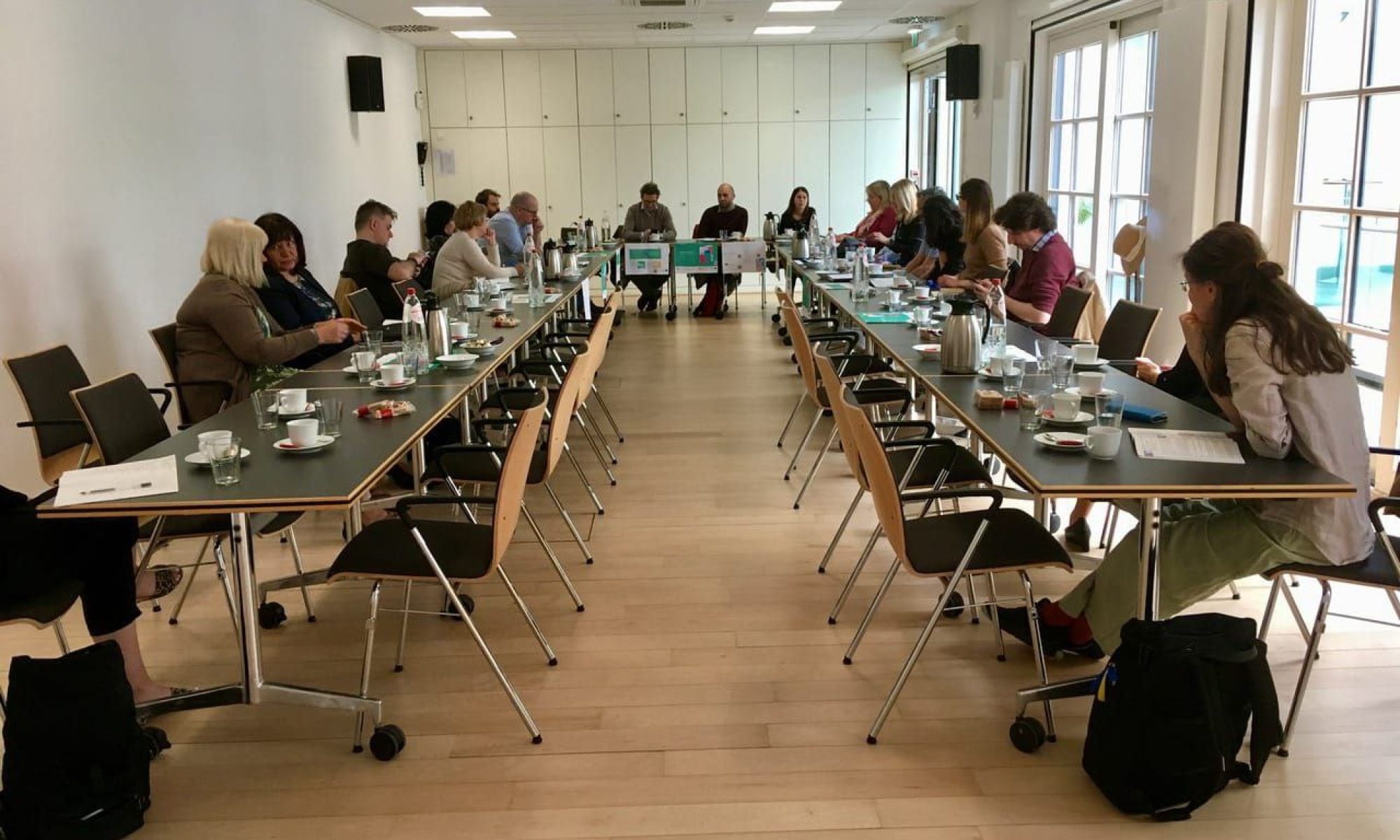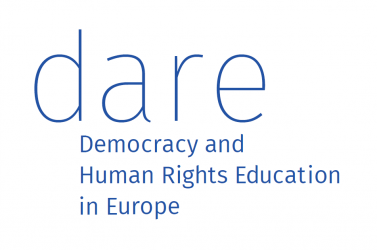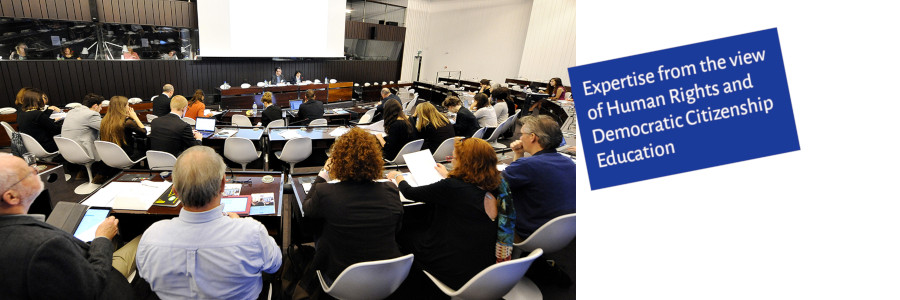- Communication to the new program design for 2014-2020
The DARE network highly welcomes the envisaged increase of the budget for a new Educational program of the EU 2014-2020.
But before deciding on a new program structure we would prefer a proof from the side of educational content rather than to conjure with easily digestible financial figures. The DARE network has huge problems in accepting that the EC has not published any realistic idea how to finance the increased EFA budget. The EC´s proposal to generate new EU income by deducting a financial transaction tax to the EU appears in regard to the current development of the financial markets and the financial cutbacks in the member states not realistic. We ask the members of the European Parliament and representatives of the Council of Minister when discussing this budget to insist on a sound strategy for refinancing the proposed budget for EFA. Higher investments must be based on a sound refinancing strategy and at least be accompanied by visible savings of money in other fields of EU policy making!
The newly to be established system of one-stop-agencies is a risk to fall behind the standard established.
The EC´s communication on EFA includes a streamlining and reduction of administration by introducing a system of one-stop-agencies. The idea to create synergies between the different actions and reduce the administrative costs is tempting.
DARE points out that the current highly decentralized administration via national agencies is a basic condition for high quality program outputs in all current programs. Therefore the envisaged reduction of administration should be an administrative reduction for all involved parties: The EC, the national Agencies and most important the thousands of educational organizations/institutions carrying out the programs.
We fear that the reduction of administrative costs from side of the EC will have the consequence that transaction costs for potential applicants will increase as they require more expertise and knowledge to run successful projects. A real reduction of administration can only happen if civil society organizations get better access to the European level. A sound institutional funding of European networks, umbrella and platforms via operating grants following the needs of ALL learners needs to be included in the new EFA program. The EFA proposal so far does not even mention the instrument of operating grants for these networks.
As network of educational providers in Education for Democratic Citizenship and Human Rights Education we see an urgent need to have a possibility for the EU to generate political impact on the national education systems, especially in the field of youth policies in order to implement the European Fundamental Rights Charter, the European youth Strategy and the new Agenda for Adult Learning. All evaluation results especially of the current Youth in Action program show that the decentralized model of agencies has proven to generate this impact and is evidently a basic condition for the sound implementation of EU policies: be it the EU youth strategy or recently the establishment of new national coordinators for the Agenda for Adult learning – both give evidence that there is a need to do more than just to program administration on the national level.
Out of the perspective of Education for Democratic Citizenship and Human Rights Education pluralism in Education, Educational Systems and Educational programs is a public good, worth to be valued all over Europe and especially to be considered valuable by the EU. The current plan to establish a new educational program named Erasmus for all is an attempt to establish a one-size-fits-all instrument, which unnecessary risks to meet the different needs and challenges of learners and educational providers on both national level and educational strands levels. We see especially the work with the community of disadvantaged learners jeopardized. The established program structure with Erasmus, Comenius, Leonardo and GRUNDTVIG is a label for high quality as it best corresponds with the needs of the different educational strands in the member states.
The new program should build upon this fundament and at least keep a separate strand for each of the target groups.
No competition between different sectors of education! Education is not a field that follows a simple economical logic.
DARE as a network of providers of non-formal Education for Democratic Citizenship and Human Rights Education wants to point out that there is several important educational fields in both youth and adult education that until now have limited access to EUROPEAN UNION POLICIES and programs and accordingly are in need of sound support mechanisms to participate in any European activities and to contribute to the implementation of European policies.
There are huge infrastructural differences between the stakeholders being summarized under the new ERASMUS for ALL-program. In a new program we fear that large providers of “mobility” such as higher education institutions backed with a strong infrastructure will have a structural advantage to easily generate high benefits for their educational field. They can much easier produce success stories as small providers working with hard to reach target groups can. There is especially a threat for the field of non-formal education as 44% of the EFA budget are not yet assigned to any specific actions and will be divided upon experiences with the running program. Even worse: If the envisaged 70% increase of the budget will not happen we risk to facing a boomerang effect that will wash away all positive results gained so far in the smaller sectors of adult education and the youth field.
The EU should acknowledge that potential applicant organizations/ beneficiaries in the various fields of education have different starting conditions to generate success. The GRUNDTVIG program is an example for providing all groups of learners with useful tools to participate in EU programs. The relative low numbers of some GRUNDTVIG actions give evidence for the infrastructural situation of adult learning in a lot of European countries. This should not lead to the conclusion that the actions are ineffective or do not reach a good performance ratio; on the contrary they are an urgent appeal to the EU to put even more energy in this field!
Erasmus for All should be a program for ALL learners in Europe and not a mobility supporting scheme only for highly privileged groups of learners. Especially in times of the current crisis the EU has a political responsibility to react with an inclusive educational program that takes in account the needs of all educational strands and of the individual learners.
We ask the EP and the Council of Ministers to insist for a minimum allocation of funds to each educational sector by fixing at least 80% of the budget in order to secure funding for the disadvantaged groups of learners and their learning institutions/providers in Europe. Fixed budget chapters for the different fields of education are important. Any competition between different fields of education should be avoided.
The EP should insist on co-deciding on any decisions of the EC in regard to the allocation of the not yet assigned 44% of the proposed EFA budget; the proposal of the EC to distribute these 44% via a commission regulation is simply undemocratic!
A clear orientation on Active Citizenship and participatory learning in the new generation of Educational programs!
In the current situation of the financial crisis Democracy is at risk in many European member states! Out of the perspective of Education for Democratic Citizenship and Human Rights Education long term systemic impact and mutual support for the EU can only be generated in an Educational program that indeed values diversity and pluralism of learning strands and especially focuses on individual learners. There is a clear connection between the economic downturn, unemployment and the increase of anti-democratic attitudes all over Europe. In order to combat incitements to intolerance, racism and xenophobia all over Europe a clear orientation and emphasis of Lifelong learning on active citizenship policies has no alternative.
Especially in a new integrated program the EU is asked to follow the recommendation published by the European Agency for Fundamental Rights to promote priorisation of HRE in the work programmes and funding streams of DG Education and Culture (…)”(see: European Union Agency for Fundamental Rights: Institutional needs assessment for Human Rights Education, FRA1-CAR-2009-NP01, page 65.)
Non formal learning shapes identity and gives meaning to life; it provides autonomy and the sense of responsibility of people and communities. Non formal education is important as it is based on people’s own identity, culture, values and prior experiences which enables and encourage every citizen to be actively involved and to have a voice. To meet the current challenges in education NGO´s as providers of non formal education are much needed especially in the current economical climate and in the rapidly changing world. While all intergovernmental organisations emphasize the urgent political need for more education for democratic citizenship and Human Rights Education the European Union is the only one that is not taking civic and social skills as a priority for the future educational programme.
Education is a fundamental right and it supports also people who lack opportunities, disadvantages and face poverty. In order to enrich a multicultural democratic, participatory Europe of active citizens we believe it is important to have sound support for non-formal education to encourage learning between communities and about different cultures in support of human rights, peace and fundamental freedoms, democracy, justice, liberty, equality and diversity. Non-formal education will not only provide new opportunities to learn throughout life to eliminate discrimination and violence but will shape peoples´ lives to become responsible citizens, which will help transform Europe to a positive future we are all striving to achieve.
An independent and strong youth program should be maintained!
Out of the perspective of Education for Democratic Citizenship and Human Rights Education DARE is largely concerned about the developments regarding the summarizing of the current Youth in Action program to future Erasmus for All. Note: We generally welcome any approaches to contribute with the creation of the new EFA program to make the European area of Lifelong and lifewide learning become reality. Nonetheless we want to point out that there is European consensus that the success of Education for Democratic Citizenship and Human Rights Education all over Europe is bound to a strong and youth policy field (see the 2010 Council of Europe Charter on Education for Democratic Citizenship and Human Rights Education). The implementation of European Youth policies in the EU builds upon the pillars of an independent youth program which cannot be summarized just under an educational perspective and shall especially not be reduced to its economical usability. All evaluations of the current Youth in Action program give evidence on the wide impact European youth policies have on level of the member states. This status should be maintained also in the new Generation of educational programs.
DARE is a Europe wide network of currently 52 NGO´s in 27 countries. DARE stands for Democracy and Human Rights Education in Europe and is itself a result from GRUNDTVIG network funding.


